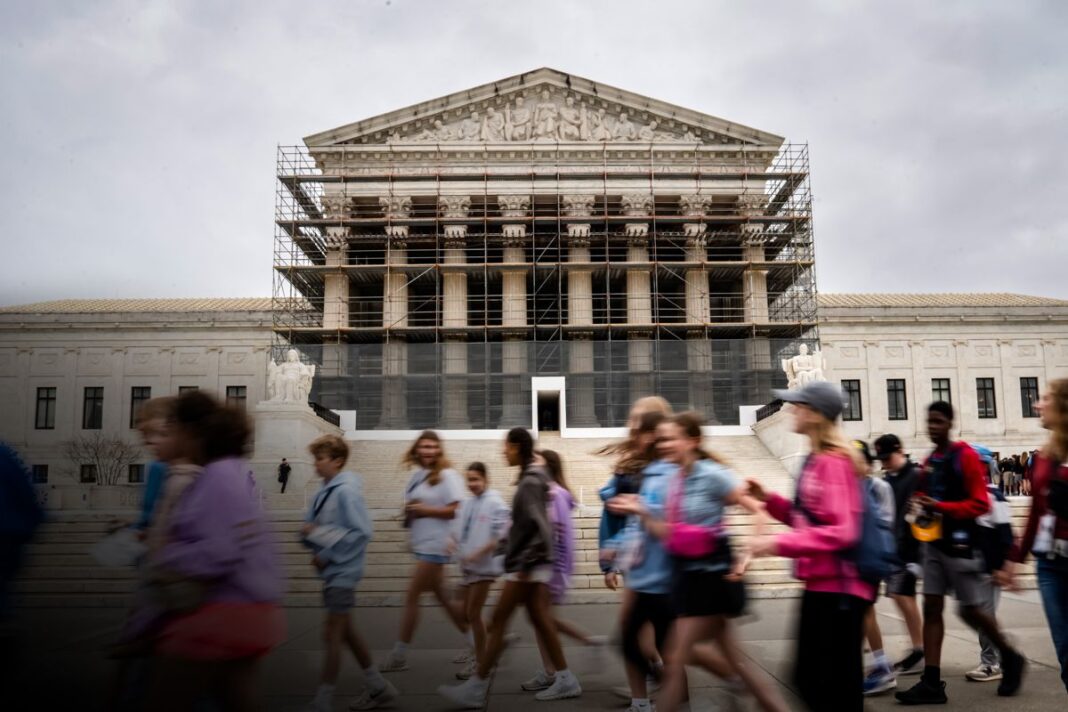Trump said on Sept. 2 that he hoped the high court would uphold his tariff package.
The Supreme Court on Sept. 9 agreed to expedite review of lower court rulings that struck down most of President Donald Trump’s reciprocal tariffs.
The president has made tariffs the centerpiece of his foreign policy in his second administration, saying they may be used to encourage manufacturing to return to the United States. He has also said that tariffs may help correct what he considers to be unfair trade practices engaged in by countries that export goods to the United States.
A reciprocal tariff is one imposed by one country on imports from another, to match the tariff the other country imposes on the first country’s exports.
The cases will be heard in the first week of November, the court said in a new order.
The two cases are Learning Resources Inc. v. Trump and V.O.S. Selections Inc. v. United States. The high court consolidated the cases and ordered that they be heard together. No justices dissented. The court did not explain its decision.
On Sept. 2, Trump told reporters that he hoped the Supreme Court would uphold the tariffs.
“It’s a very important decision, and frankly, if they make the wrong decision, it would be a devastation for our country,” he said.
“Without the tariffs, this country is in serious, serious trouble. We’ve taken in almost $17 trillion of investment [which] is coming in. Most of it is coming because of tariffs.”
Treasury Secretary Scott Bessent said on Sept. 7 that the Department of the Treasury will be forced to issue tariff-related rebates if the Supreme Court upholds a lower court order that blocked a large portion of the tariffs issued by the Trump administration earlier this year.
“We would have to give a refund on about half the tariffs, which would be terrible for the Treasury,” Bessent told NBC News’s “Meet the Press,” meaning that it would represent a loss in federal revenue.
“If the court says it, we’d have to do it,” he said, noting that the Trump administration is confident that it will win the case before the Supreme Court.
Bessent said there could be “other avenues” to imposing tariffs if the Supreme Court rules against those duties, although he did not give details about what they are. However, he said, those maneuvers would diminish the authority of the Trump administration.
Jack Phillips contributed to this report.
This is a developing story and will be updated.








